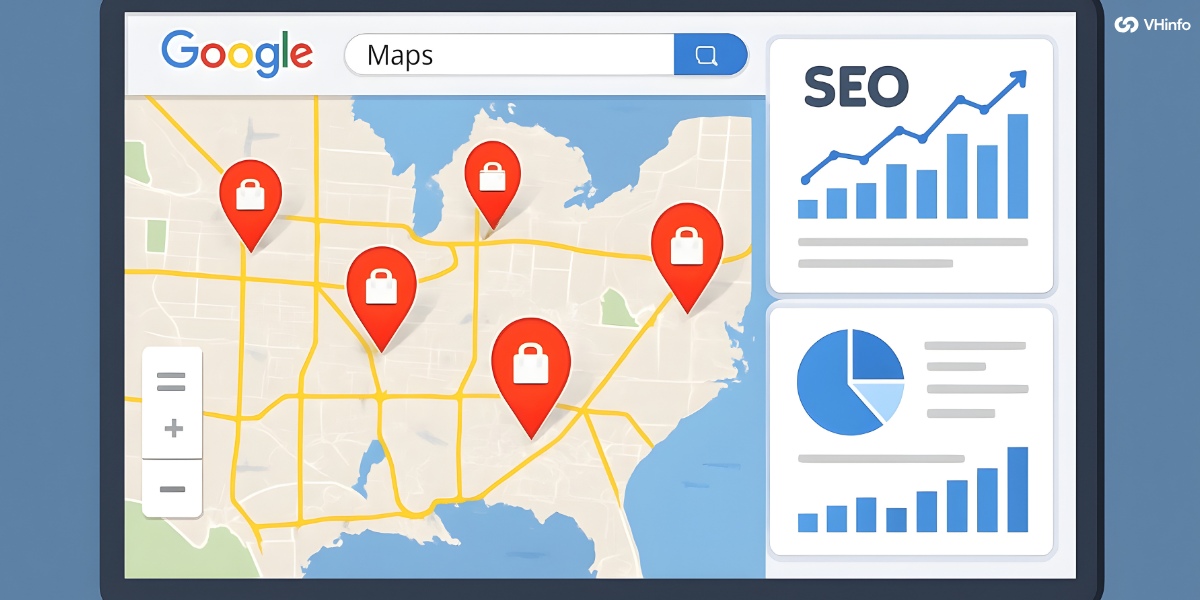At VH Info, we take pride in helping SaaS companies refine the skill set needed to thrive.
A competitive edge in the SaaS industry comes from blending technical proficiency, effective communication, and strategic vision to address actual customer needs.
Factors like user experience, data analysis, and awareness of industry trends all play a role. Each person—from a SaaS product manager to a sales leader—requires a diverse skill set for business growth.
Let’s examine the essentials that guide a successful product manager, drive marketing campaigns, elevate customer experience, and nurture robust project management practices.
The material here presents actionable best practices that can spur continuous improvement across any SaaS product’s lifecycle.
What Are SaaS Skills?

SaaS skills refer to the essential skills professionals demonstrate when developing, marketing, selling, and managing a SaaS product. These talents appear in roles from software development to product management and from marketing teams to sales teams.
Each SaaS role depends on proper time management, technical proficiency with new technologies, and the ability to interpret customer feedback. Professionals also need soft skills like communication skills and organizational skills to coordinate across functions.
Whether the goal is to improve a development process, transform a product strategy, or build better customer support channels, SaaS skills keep teams aligned.
Unlike traditional software development, SaaS focuses on constantly updating product features and refining the user experience.
That means roles like a SaaS product manager must stay current with market trends, build innovative solutions, and apply leadership skills that unite diverse teams. Every department—engineering, marketing, and sales—plays a part in driving better decisions and securing the biggest impact in a competitive landscape.
Key Areas of Application in SaaS

Skills in the SaaS industry extend beyond product development. They apply simultaneously in marketing campaigns, sales process optimization, and customer support. These areas combine to shape a clear vision for growth.
- Product Development and Management: A skilled product manager interprets customer needs, sets product feature priorities, and leads the development process. Product manager skills range from data analysis on customer behavior to articulating a clear communication plan for internal teams.
- Marketing and Growth: SaaS companies rely on multiple channels, such as social media and email marketing, to reach their target market. Teams monitor industry trends and market dynamics so they can tailor messages that align with the competitive landscape.
- Sales and Revenue Operations: SaaS sales teams refine their sales process by blending technical proficiency with relationship-building tactics. By focusing on user experience, these teams cater to customer needs directly, turning prospects into loyal buyers.
- Customer Support and Success: A commitment to ongoing customer support builds trust and paves the way for a positive customer experience. From troubleshooting complex concepts to collecting customer feedback, support teams reinforce the product’s value.
What Are The Must-Have B2B SaaS Marketing Skills?

- Industry Knowledge: Marketers in the SaaS industry stay ahead of market trends to engage the right target market and maintain a keen sense of competition. Awareness of new technologies and historical data helps in mapping the competitive landscape and shaping effective campaigns.
- Marketing-Specific Skills: Successful marketing campaigns hinge on understanding multiple channels such as social media, email marketing, paid advertising, and direct outreach. A strong grasp of product strategy, market dynamics, and the biggest impact channels guides high-value engagement.
- People Skills: Marketing involves a blend of communication skills and collaboration. Whether negotiating partnerships or aligning with a sales team, people skills are important. This focus on effective communication promotes alignment with product management teams and fosters better decisions at every milestone.
- Problem-Solving: SaaS marketers solve issues ranging from limited audience reach to positioning the product in a crowded market. A systematic approach draws on data analysis, user experience reviews, and product manager input to produce innovative solutions.
- Content Creation and Creativity: SaaS marketers who highlight product features and user benefits through creative content earn trust. By simplifying complex concepts, they improve brand authority and show a deep knowledge of the product. Persuasive and informative content can yield continuous improvement across marketing channels.
- Project Management: Project management skills help B2B marketers organize tasks, hit deadlines, and coordinate among teams. A planned approach ensures efficient use of the budget and helps maintain a consistent brand identity. This also influences a positive user experience by eliminating inconsistencies.
- Data Analysis: Modern marketing decisions rely heavily on data analysis. Marketers use quantitative insights to measure campaign success, assess customer behavior, and refine strategies. Cross-functional collaboration with development teams opens the door to deeper data-driven insights.
- Tech Skills: Technology-driven marketing tools track conversions, automate messages, and support rapid iterations. Basic technical proficiency helps marketers configure analytics platforms, interpret performance metrics, and communicate more effectively with product and development teams.
Essential Technical Skills For SaaS Professionals

In today’s technology-focused world, SaaS workers need strong technical skills to do well in their jobs.
These skills include many areas, like software development, cloud computing, and data analysis. This knowledge helps them with creating, launching, and managing SaaS products and services.
- Programming and Development Skills: SaaS professionals who code or oversee a development process rely on expertise in languages such as JavaScript, Python, or Ruby. For robust software development, that knowledge of the product’s architecture ensures stable product feature deployment. A focus on security, speed, and maintainability drives better user experiences.
- Cloud Computing and Infrastructure Knowledge: As the SaaS industry thrives on cloud-based models, cloud services like AWS or Azure handle hosting, scalability, and reliability. Familiarity with virtual environments, load balancing, and deployment pipelines benefits all roles in SaaS companies. By monitoring usage metrics, teams decode historical data and make improvements.
- Data Analytics and Database Management: Data analysis underpins all major decisions that affect the product experience. Teams integrate tools for capturing and analyzing data in real-time, shaping product manager skills in optimization. With database systems, a well-managed approach to user records boosts security and fosters efficient operations.
- API Integration and Management: Many SaaS products rely on strategic integration with external apps. Mastery in developing and managing APIs expands functionality, streamlines user experience, and strengthens brand relationships. Those with a diverse skill set in integration connect multiple services to capture a broader audience.
- Cybersecurity Best Practices: Security lapses damage loyalty and brand reputation. SaaS professionals must know best practices including encryption, data backups, and vulnerability testing. Proactive attention to risk management benefits the entire sales team, product team, and executive leadership.
Critical Soft Skills For SaaS Success

Technical skills are important in the SaaS industry. However, soft skills make professionals stand out and help them succeed over time.
- Problem-Solving and Critical Thinking: Teams frequently face unexpected challenges during product development, marketing campaigns, or user support. Resourceful problem-solving is vital for adapting to ever-shifting market dynamics. By approaching each obstacle with structured thinking, individuals become invaluable.
- Communication and Collaboration: Clear communication promotes alignment on product strategy, feature priorities, and deadlines. Collaboration across the sales team, development group, and customer support fosters synergy. Colleagues share best practices, refine approaches, and maintain a consistent brand voice.
- Strategic Thinking and Decision-Making: A SaaS professional who sets a clear vision for a product or an entire company invests in strategic vision. This approach balances short-term needs with long-term growth. It’s linked to tested leadership skills like analyzing market trends, using historical data, and staying aware of potential shifts in customer behavior.
- Time Management and Organization: Poor time management or disorganized priorities can derail high-potential projects. Effective milestone management streamlines large undertakings like cross-functional product development, ensuring schedules are maintained, costs are controlled, and consistent user experience improvements are delivered.
- Adaptability and Resilience: The SaaS industry pivots quickly, especially when novel solutions, new technologies, or significant market trends appear. Resilient professionals respond to user feedback, refine product features, and maintain momentum through uncertain conditions. Adaptability leads to continuous improvement.
SaaS Sales Leader Skills

SaaS sales leaders are very important for helping companies grow their revenue. They lead and motivate teams to reach sales goals. In a tough market, they need special skills to handle complex sales, build strong customer bonds, and adjust to changes in the SaaS world.
- Strategic Vision: A sales leader in SaaS sales creates an overarching plan for revenue growth by analyzing both historical data and future-focused metrics. That clear vision maps out sales process steps and positions the team to address shifting customer needs.
- Team Leadership: High-performing sales teams flourish when leadership skills prioritize guidance, motivation, and trust. An active leader fosters communication skills and personal accountability. By encouraging professional development, the sales leader sets the stage for business growth.
- Sales Process Optimization: Employers look for essential skills in SaaS sales leaders. They should improve sales processes with new tech and best practices. Every step, from market targeting to personalized outreach, aims to maximize revenue impact.
- Customer-Centric Approach: Gaining a competitive edge starts with focusing on customer experience. This approach involves recognizing customer behavior and tailoring solutions to ease pain points. Clear communication about product features, pricing, and benefits builds long-term loyalty.
- Revenue Forecasting and Management: To predict well, study trends and past data. Good sales leaders set achievable goals, track progress, and adapt strategies based on outcomes. When finance, product, and marketing work together, everyone gains.
- Negotiation Skills: Sales leaders gain ground by aligning product value with buyer expectations. They highlight knowledge of the product’s unique advantages and present it in a way that resonates with the customer’s target market. Strong negotiation fosters trust and helps finalize deals.
- Tech-Savviness: SaaS sales revolve around technology. A sales leader demonstrates technical proficiency, easily navigating CRM platforms, analytics tools, and automation suites. Whether training a sales team or evaluating new software, this person’s expertise paves the way for a well-integrated environment.
- Communication Skills: A sales process relies on effective communication through presentations, emails, and calls. Buyer and seller must both see the product’s fit. Sales leaders unify talking points, address complex concepts plainly, and reinforce brand confidence.
- Analytical Thinking: Solid analysis of conversion rates, win/loss ratios, and pipeline data guides better decisions. The sales team can zero in on friction points and adapt quickly. Analytical thinking leads to the biggest impact when it balances real-time metrics with strategic vision.
- Adaptability and Resilience: Rapid changes in market dynamics demand resilience. A sales leader who responds to product feedback clarifies the next steps for the sales team, and champions continuous improvement leads in both good times and challenging moments.
SaaS Skills By Role

The skills needed for a job in the SaaS industry can change based on the role’s duties. Still, there are key skills that can help in many different SaaS jobs.
- Skills For SaaS Developers: Developers create, maintain, and improve a SaaS product. Essential strengths include software development expertise, a solid development process, and knowledge of the product’s codebase. Developers also apply soft skills for cross-team collaboration, ensuring that new releases address customer needs.
- Skills For SaaS Sales Representatives: A strong SaaS sales approach thrives on product knowledge, time management, and communication skills. Representatives must zero in on custom benefits for the buyer’s situation. By recognizing the target market and highlighting relevant product features, they expand the pipeline and accelerate business growth.
- Skills For SaaS Marketers: Marketers excel at combining data analysis, creative content production, and an eye for market trends. Whether they are building marketing campaigns, refining email marketing flows, or engaging on social media, they tie back each activity to customer behavior, product positioning, and revenue impact.
- Skills For SaaS Operations Teams: Operations roles demand organizational skills, a clear vision of company workflows, and an approach that unites cross-departmental processes. Individuals oversee resource allocation, coordinate product updates, and maintain internal tools. Coordinating with a chief product officer or a product manager streamlines the entire SaaS ecosystem.
- Skills For Customer Service Teams: These teams handle customer feedback, troubleshooting, and user concerns. Essential skills include empathy, effective communication, and deep knowledge of the product. Prompt and knowledgeable customer support leads to positive customer experience metrics and fosters retention.
How to Develop SaaS Skills?

- Online Courses and Certifications: Many platforms offer targeted training. Whether it’s advanced programming or product manager skills, courses help professionals strengthen a diverse skill set. Gaining recognized certifications demonstrates credibility.
- On-the-Job Training and Mentorship: Hands-on learning goes a long way. Working closely with experts encourages real-world lessons in project management, software development, or marketing. Mentors share direct experiences with new technologies, from how to orchestrate a product release to ways of capturing user feedback.
- Networking and Industry Events: Events connect SaaS professionals who discuss best practices and new ideas. Meeting others in the SaaS field helps participants detect emerging product strategy techniques, uncover relevant market trends, and refine approaches to leadership or product development.
- Staying Updated With Industry Trends: Blogs, podcasts, webinars, and data-driven reports add insight into the current competitive landscape. Tracking shifts in user preferences, tech releases, or advanced marketing campaigns provides the perspective needed for better decisions.
FAQ’s:
What Makes a Successful SaaS Professional?
A successful individual in SaaS keeps a clear communication style, monitors user experience rigorously, and demonstrates a keen sense of market trends. They apply a mix of soft skills, time management, technical proficiency, and leadership skills to ensure continuous improvement.
What Are The Most In-Demand SaaS Skills?
Roles typically emphasize a combination of product manager skills, data analysis, sales optimization, and project management. Knowledge of programming languages, best practices in cybersecurity, and the capacity to translate complex concepts also stand out.
Do I Need Technical Knowledge to Work in SaaS?
Not every position demands in-depth software development ability, but technical proficiency broadens career potential. Even roles in marketing campaigns or customer support benefit from basic familiarity with the product and an awareness of new technologies.
How Can I Improve My Technical Skills For a SaaS Career?
Candidates often use online courses, practical projects, and mentorship programs to refine their skill sets. Participation in hackathons or open-source collaborations can also accelerate growth, especially when aiming for a successful product manager or developer role.
Are Soft Skills As Important As Technical Skills in SaaS?
Yes. Clear vision, organizational skills, empathy, and problem-solving drive better user experiences. Soft skills—including effective communication and adaptability—are essential for bridging technical goals with customer needs, enabling teams to remain flexible in a competitive landscape.
How Do Agile and Scrum Methodologies Apply to SaaS Development?
They speed up product development by splitting tasks into manageable sprints, relying on continuous feedback loops for product features. Agile or scrum fosters better decisions by driving team collaboration, quick iteration, and an openness to refining product strategy.
Conclusion
SaaS skills integrate both technical expertise and soft skills for lasting success. They allow SaaS companies to create a refined product strategy, build meaningful user experience journeys, and adapt to ever-changing market dynamics.
Professionals who combine communication skills, data analysis, organizational skills, and time management show a bigger capacity for meeting customer needs. Additionally, continuous improvement in areas like product management, SaaS sales, and software development remains vital for securing a competitive edge.
VH Info encourages every SaaS professional to evaluate their skill set regularly and commit to building new capabilities.
Whether it’s refining leadership skills as a sales leader or polishing your approach as a SaaS product manager, consistent effort in these essential skills can yield significant returns.
By applying smart practices, harnessing user feedback, and adopting new technologies thoughtfully, your team empowers a powerful SaaS product that sets the stage for lasting business growth.



